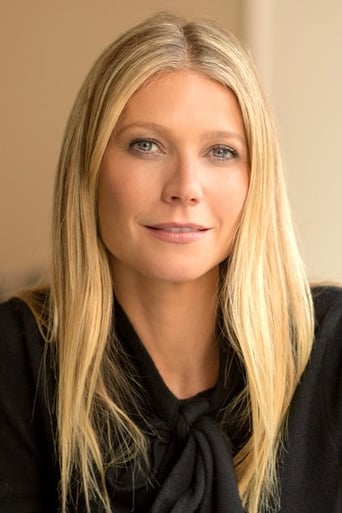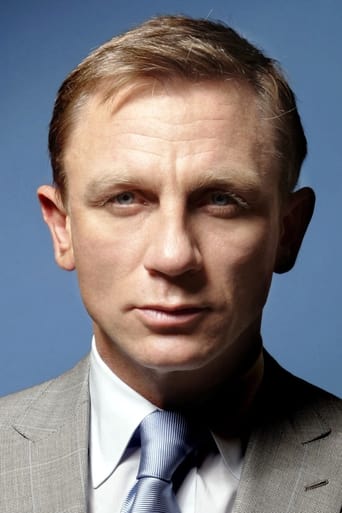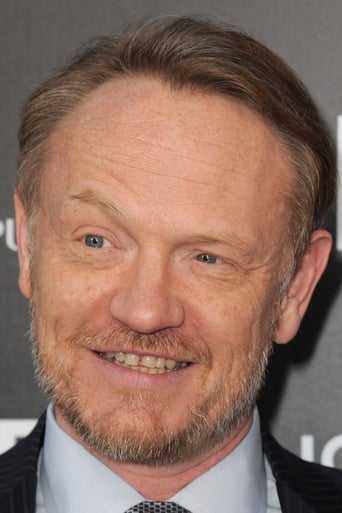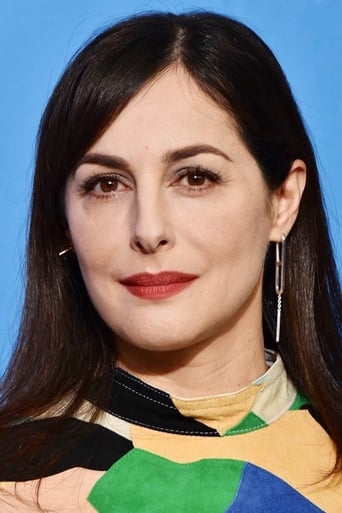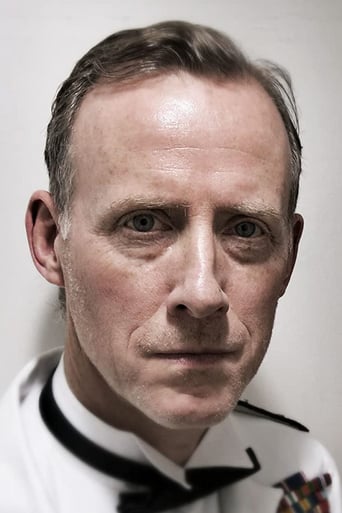AboveDeepBuggy
Some things I liked some I did not.
Pacionsbo
Absolutely Fantastic
RipDelight
This is a tender, generous movie that likes its characters and presents them as real people, full of flaws and strengths.
Tyreece Hulme
One of the best movies of the year! Incredible from the beginning to the end.
Prismark10
Once Ted Hughes died in 1998, it became open season to speculate as to what had happened in his short stormy tempestuous marriage with Sylvia Plath. Some people blame Hughes for Plath's suicide in 1963.The film begins when American Sylvia Plath (Gwyneth Paltrow) a Fulbright Scholar at Cambridge University where she meets acclaimed and passionate Ted Hughes (Daniel Craig) a man who lives for poetry.They quickly get married and initially move to the USA. Plath finds it difficult to write and Ted feels uncomfortable in America. They return to Britain, but Sylvia struggles with Ted's infidelity, his success as a writer while she raises two young children.However in time Sylvia starts to develop her own style of poetry which is based on her personal moods and state of mind.Craig gives a passionate performance as Hughes, he comes across as fiery, talented and a ladies man. Paltrow has a more difficult role as the vulnerable and neurotic Plath but she does well with what felt was an underwritten role. The film makes it clear that Plath had bouts of depression and even attempted suicide before she met Hughes.Sylvia cannot get a handle on the complexities of the characters that it is dealing with. In the end it treads a middle line neither blaming Hughes for Plath's death or absolving of any responsibility. The film does feel flat and undernourished. It was not helped that the Plath estate would not grant permission for the use of her writings in the movie.
dirtphelia
After reading "The Bell Jar," I decided to watch this movie, which for some reason I thought would be a film adaptation of "The Bell Jar" - though maybe I thought that because that book is Plath's most famous work.The movie has nothing to do with "The Bell Jar" except for the few seconds in which Sylvia tells Edward about how she tried to kill herself when she was younger. The rest of the movie seems to be about the couple's drama, and I say "seems" because I skipped most of it to save my brain from the boredom and to get to the part where Sylvia kills herself, at which point the door to the kitchen closes and we can't see her going through with it anyway.Gwyneth Paltrow does a great job but she was the wrong person for this role because the whole time I'm not thinking "There's Sylvia," but rather, "There's Paltrow playing Sylvia."
Syl
The life of Sylvia Plath and Ted Hughes was a complicated relationship. They were both poets. Sylvia was far more brilliant but totally tortured by her own inner demons. Perhaps, she would have been treated today for mental illness with counseling and medication. Sadly, Sylvia's suicide is fact and not fiction. She was still brilliant and promising but tortured by her inner demons of jealousy about her husband. Perhaps she had postpartum depression as well. Gwyneth Paltrow's performance of Sylvia Plath is a solid performance but it's weakened by poor writing. Daniel Craig does very well in playing her husband. I do enjoy seeing Blythe Danner in playing Sylvia's mother. Poetry is perhaps the most difficult of all writing and takes various forms. It's not surprising that Sylvia Plath had done her finest work solo but she was a gentle soul. I enjoyed seeing Sir Michael Gambon as her landlord. Like I wrote, I felt better improved writing could have helped turn this film into an Academy Award nominated performance by Gwyneth Paltrow. Also, the film was shot on location in New Zealand rather than England or America.
Dave from Ottawa
There is a certain type of undergraduate who sees Sylvia Plath as the victim-heroine of a period that lionized talented men but had no place for women of similar gifts, and fortunately this film does not pander to them. Poets rarely receive lavish acclaim or wealth during their lifetimes, and hers was at least equal to her talent and irrespective of her gender. Any reasonably critical reader of her autobiographical novel The Bell Jar can see evidence of serious mental illness, which in Plath's case went largely untreated, and this film chooses to focus more on that aspect of her life than on anti-feminist conspiracy theories. However, the film comes up short of fully showing Plath as the highly complex and contradictory person her contemporaries knew: sexy, seductive yet so harsh and venal in her judgments of men (especially her husband and her father) as to seem man-hating; also manipulative and vain and yet so insecure that she went long periods without writing. She was likely bi-polar and could on occasion be described as downright monstrous, yet the film hollywoodizes Plath into a more conventional 'troubled' melodrama heroine, rather than delving deeper into the brutal reality of the day-to-day life of someone with significant mental illness. This is surprising given that director Christine Jeffs' earlier film on mental illness, Rain, was unstintingly honest. Plath's well known life history is covered in straightforward biopic narrative: her close-distant, love-hate yo-yo relationship with her mother; her famous first suicide attempt and the subsequent year spent in a sanatorium that was the basis for The Bell Jar; her rocky marriage to British poet Ted Hughes that ended because of his infidelity; her prolific period as a celebrated poet and her eventual death by suicide while still young.I should point out that I thought the cinematography and production design were wonderful. The excellent period look is established by bleeding out bright color from every scene while giving it an amber tint like old photographs. The sets were almost hyper-realistic - cluttered, dim and claustrophobic with none of the romanticized shininess that Hollywood often lavishes on period dramas.



